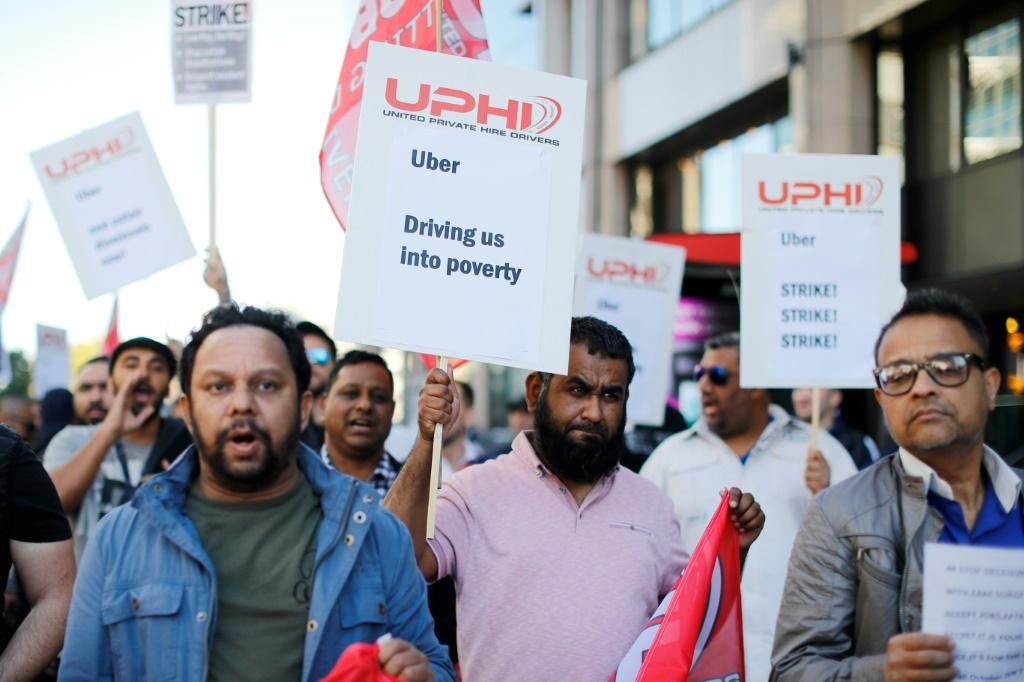Britain's Supreme Court is to rule Friday on the employment status of Uber drivers in a judgement with wider implications for the "gig economy".
The ruling is set for 0945 GMT after a years-long legal battle, with the US taxi and delivery company suffering court defeats in 2017 and 2018.
Lower courts have ruled in favour of a group of 20 Uber drivers who argue they were entitled to employee status given the length of time they had been working through the Uber app, and the way that the company oversaw their work.
Employee status would mean that they were entitled to benefits including a minimum hourly wage and paid holidays.
Uber insists that the drivers are self-employed since they choose their own hours and place of work, and often find passengers through rival apps.
If the Supreme Court finds against Uber, the complainants who launched the case can ask an employment tribunal for compensation, and it could trigger further-reaching changes affecting all ride-hailing drivers.
The ruling could equally affect the online platforms behind the so-called gig economy in Britain -- people doing short-term work without formal contracts, or working without guaranteed hours.
Couriers for the Deliveroo food app are currently fighting in the Court of Appeal in London for the right to collective bargaining.
Uber says that it has changed the way it works since the legal action began.
Drivers can now choose when and where they drive and can also access free health insurance as well as compensation for parental leave, it says.
Ahead of the court ruling, Uber vowed to increase protection for drivers while keeping them self-employed.
Uber chief executive Dara Khosrowshahi on Monday presented a series of promises to European governments and trade unions.
He said the aim was to offer a transparent and fair pay structure, and more benefits to drivers.
Uber is calling for companies in the sector to form a joint fund that would allow drivers who work for different apps to be able to access protections and benefits such as paid holidays.
Uber plans to replicate in Europe proposals it first made in California, after a court in the US state ordered the platform to classify its tens of thousands of drivers as employees.
But voters in November then backed Proposition 22, a measure designed by Uber and other gig companies that would mean drivers remained independent contractors while receiving some benefits.
Friday's decision is not expected to affect Uber's right to operate in London, which has been subject to a separate dispute.
The platform last September regained the right in London for 18 months, after a court overruled a decision by city authorities to suspend its licence due to concerns over passenger security.
Copyright AFP. All rights reserved.


